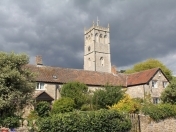
The chemicals involved in fracking affect the health and well-being of every man, woman, child and animal. Although the following United Nations report, and recommendation for a "comprehensive and complete ban on fracking" was written for the 'Convention on the Elimination of All Forms of Discrimination against Women', it applies to everyone. (See map of fracking areas.)
| DATE | ARTICLE |
| 26 Feb 19 | UN urged to ban fracking to safeguard UK women "...argued that women’s rights were compromised because they said: There was evidence that fracking was linked to higher rates of cancer and nervous, immune and cardiovascular problems in women ...found that pregnant women living near active fracking operations ... had a 40% increased risk of giving birth prematurely and 30% had obstetrician-labelled ‘high-risk pregnancies. Fertility and menstrual problems in women could be caused from exposure to chemicals associated with fracking, including benzene, toluene and xylene (BTX chemicals). Miscarriages and still births could be caused by the heavy metals found in fracking waste water." |
| 14 Mar 19 | para 53 "... concerned that women in rural areas in other territories of the State party are disproportionately affected by the harmful effects of fracking, including exposure to hazardous and toxic chemicals, environmental pollution and the effects of climate change." para 54b "Review its policy on fracking and its impact on the rights of women and girls and consider introducing a comprehensive and complete ban on fracking;" |
| 20 May 19 | Is the UN finally turning against fracking? "Four separate countries make up the UK. Of them, England is the only nation that still allows hydraulic fracturing; Scotland, Wales and Northern Ireland (along with a host of other countries worldwide) have banned the controversial process" |
What can people do? The more that developers, shareholders and public representatives hear comments against fracking the less likely it will happen, so:
- Encourage your Town or Parish Council to pass a motion to either be 'Frack Free' or 'Let Communities Decide' (See Bleadon declared 'frack-free')
- Write to your parish and district councillors and MP either directly or via "They Work for You/Write to Them" which will track responses. (John Penrose MP has indicated that he will represent the community's decision)
- Personally visit and speak to your elected representatives, let them hear your views on this local 'fracking' issue.
- Let FFNS know if you, or your neighbours, receive a request to survey your land for 'fracking'
- Contact FFNS and/or FFEQS if you're interested in being involved in a local Committee/Action Group to tackle this issue and/or would like another public meeting on this issue to be held.
- Write to local newspapers
-----------------------
RELATED LINKS
Bleadon's Fracking Meeting (11 June 2019)
Previous Bleadon declared 'frack-free' (09 July 2019)
Further information can be found on BOB's Fracking page



Make A Comment
Comments (0)